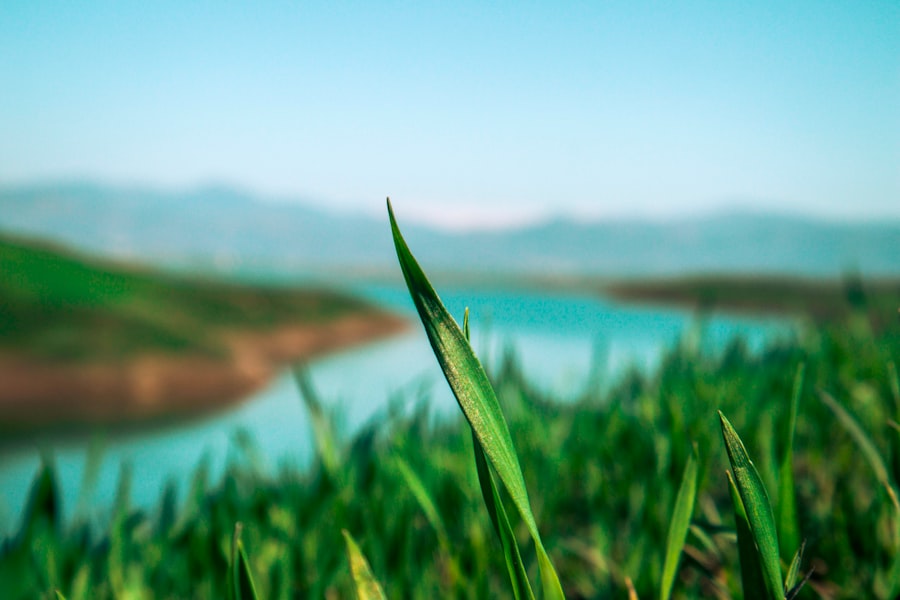Heat stress is a significant concern for chickens, particularly during hot summer months. Chickens are vulnerable to heat stress due to their lack of sweat glands, relying instead on panting to regulate body temperature. When ambient temperatures exceed 85°F (29.4°C), chickens can rapidly overheat, leading to various health issues.
Common indicators of heat stress in chickens include panting, lethargy, decreased egg production, and potential mortality in severe cases. It is essential for chicken owners to understand these risks and implement preventive measures. The impact of heat stress on chickens extends beyond immediate discomfort and distress.
Prolonged exposure to heat stress can result in long-term health problems and reduced productivity. Affected chickens may experience decreased egg production, stunted growth rates, and increased susceptibility to diseases. In extreme situations, heat stress can be fatal.
To ensure the health and welfare of their flock, chicken owners must be cognizant of these risks and take appropriate steps to mitigate them.
Table of Contents
- 1 Providing Ample Shade and Ventilation
- 2 Ensuring Access to Fresh, Cool Water
- 3 Using Water Misters or Sprinklers
- 4 Offering Cooling Treats and Frozen Snacks
- 5 Adjusting Feeding and Care Routines
- 6 Monitoring and Responding to Signs of Heat Stress
- 7 FAQs
- 7.1 How can I keep my chickens cool in the summer?
- 7.2 What are some ways to provide shade for chickens in the summer?
- 7.3 How can I improve ventilation in the chicken coop during hot weather?
- 7.4 What are some tips for keeping chicken coop temperatures down in the summer?
- 7.5 How often should I change the water for my chickens in the summer?
Key Takeaways
- Heat stress in chickens can lead to decreased egg production, poor growth, and even death
- Providing ample shade and ventilation in the chicken coop is crucial to reducing heat stress
- Ensuring access to fresh, cool water at all times is essential for preventing heat stress
- Using water misters or sprinklers can help lower the temperature in the chicken coop
- Offering cooling treats and frozen snacks can help chickens stay cool and hydrated during hot weather
- Adjusting feeding and care routines, such as feeding in the cooler parts of the day, can help reduce heat stress
- Monitoring and responding to signs of heat stress, such as panting and lethargy, is important for the health of the chickens
Providing Ample Shade and Ventilation
Shade and Ventilation: The Key to Comfort
One of the most important ways to prevent heat stress in chickens is to provide ample shade and ventilation in their living environment. This can be achieved by positioning chicken coops and runs in shaded areas, using tarps or shade cloth to create additional shade, and ensuring that there is adequate airflow through the coop. Good ventilation is essential for allowing hot air to escape and cool air to circulate, helping to maintain a comfortable temperature for the chickens.
Natural Shade and Artificial Cooling Methods
Additionally, providing access to natural shade such as trees or bushes can help chickens find relief from the sun’s heat. In addition to natural shade and ventilation, chicken owners can also consider using artificial cooling methods such as fans or misting systems to help lower the ambient temperature in the coop. Fans can help improve air circulation and reduce the buildup of heat, while misting systems can create a cooling effect as the water evaporates.
Safety Precautions for Artificial Cooling Methods
It’s important to ensure that any artificial cooling methods are safe for chickens and do not create excessively damp conditions, which can lead to other health issues. By providing ample shade and ventilation, chicken owners can help their flock stay comfortable and reduce the risk of heat stress.
Ensuring Access to Fresh, Cool Water

Another crucial factor in preventing heat stress in chickens is ensuring that they have access to fresh, cool water at all times. Water is essential for helping chickens regulate their body temperature through panting and staying hydrated in hot weather. During periods of high heat, chickens may drink more water than usual, so it’s important to regularly check and refill their water containers to ensure they never run dry.
Additionally, it’s a good idea to provide multiple water sources throughout the coop and run to prevent overcrowding and ensure all chickens have easy access to water. To help keep water cool, chicken owners can place water containers in shaded areas or use insulated containers that help maintain a lower temperature. Adding ice cubes or frozen water bottles to the water containers can also help keep the water cool throughout the day.
It’s important to monitor water consumption and refill containers as needed to ensure that chickens always have access to cool water. By prioritizing access to fresh, cool water, chicken owners can help their flock stay hydrated and reduce the risk of heat stress during hot weather.
Using Water Misters or Sprinklers
In addition to providing ample shade and ventilation, chicken owners can also consider using water misters or sprinklers as a way to help cool down their flock during periods of high heat. Water misters or sprinklers can create a fine spray of water that helps lower the ambient temperature in the coop or run, providing relief for chickens from the heat. It’s important to position misters or sprinklers in areas where chickens spend the most time, such as near their roosting areas or favorite dust bathing spots.
When using water misters or sprinklers, it’s crucial to ensure that they are set up in a way that prevents excessive dampness and moisture buildup in the coop or run. Excessively damp conditions can lead to other health issues for chickens, such as respiratory problems or an increased risk of parasites. Additionally, it’s important to monitor the chickens’ behavior around the misters or sprinklers to ensure that they are comfortable with the cooling effect and not stressed by it.
By using water misters or sprinklers responsibly, chicken owners can provide their flock with an additional way to stay cool during hot weather.
Offering Cooling Treats and Frozen Snacks
Another way to help chickens beat the heat is by offering cooling treats and frozen snacks that provide relief from high temperatures. There are several options for cooling treats that chickens enjoy, such as frozen fruits and vegetables, yogurt, or even ice cream made specifically for chickens. These treats not only provide a refreshing snack but also help lower the chickens’ body temperature as they consume them.
It’s important to offer these treats in moderation and ensure that they are part of a balanced diet for the chickens. In addition to offering cooling treats, chicken owners can also freeze regular treats such as mealworms or seeds in ice cubes or blocks of ice for chickens to peck at and enjoy. This not only provides a fun enrichment activity for the chickens but also helps keep them cool as they work to access the treats inside the ice.
It’s important to monitor the chickens’ consumption of frozen treats and ensure that they are not overindulging or experiencing any digestive issues as a result. By offering cooling treats and frozen snacks, chicken owners can provide their flock with a tasty way to stay cool during hot weather.
Adjusting Feeding and Care Routines

Adjusting Feeding Routines
One way to do this is by feeding chickens during the cooler parts of the day, such as early morning or late evening, when temperatures are lower. This can help reduce the metabolic heat generated by digestion and prevent chickens from becoming overheated while eating.
Providing a Balanced Diet
Additionally, it’s crucial to provide a balanced diet that includes electrolytes and vitamins to support chickens’ overall health during hot weather.
Monitoring and Adjusting Care Routines
In addition to adjusting feeding routines, chicken owners should also pay close attention to their flock’s behavior and make any necessary changes to their care routines. This may include reducing handling and disturbances during the hottest parts of the day, providing additional dust bathing areas for chickens to cool off, and monitoring for signs of heat stress such as panting or lethargy.
By being proactive in adjusting their feeding and care routines during hot weather, chicken owners can help their flock stay comfortable and healthy.
Monitoring and Responding to Signs of Heat Stress
Finally, it’s crucial for chicken owners to closely monitor their flock for signs of heat stress and respond promptly if any issues arise. This may include regularly checking on the chickens throughout the day, especially during periods of extreme heat, and observing their behavior for any signs of distress. If any chickens show signs of heat stress, such as panting excessively or struggling to move, it’s important to take immediate action to help them cool down.
In cases of heat stress, it’s important to move affected chickens to a cooler area with ample shade and ventilation, offer them cool water, and provide additional support such as gently misting them with water or offering cooling treats. It’s also important to monitor affected chickens closely and seek veterinary care if their condition does not improve or if they show signs of severe distress. By monitoring their flock closely and responding promptly to signs of heat stress, chicken owners can help ensure the health and welfare of their chickens during periods of high heat.
In conclusion, heat stress is a serious concern for chickens during hot weather, but there are several proactive measures that chicken owners can take to prevent it. By understanding the risks of heat stress and implementing strategies such as providing ample shade and ventilation, ensuring access to fresh, cool water, using water misters or sprinklers, offering cooling treats and frozen snacks, adjusting feeding and care routines, and monitoring for signs of heat stress, chicken owners can help their flock stay comfortable and healthy even in high temperatures. It’s crucial for chicken owners to prioritize the well-being of their flock during hot weather and take proactive steps to prevent heat stress and its potential impact on their chickens’ health and productivity.
If you’re looking for more tips on keeping chickens comfortable in the summer, you might want to check out this article on The Chicken Coop Country Diner. It offers advice on providing shade, ventilation, and cool water for your feathered friends during the hot months.
FAQs
How can I keep my chickens cool in the summer?
To keep chickens cool in the summer, provide plenty of shade, good ventilation, and access to fresh, cool water at all times.
What are some ways to provide shade for chickens in the summer?
You can provide shade for chickens by using natural shade from trees or by setting up tarps or umbrellas to create shaded areas in the chicken coop or run.
How can I improve ventilation in the chicken coop during hot weather?
Improving ventilation in the chicken coop can be done by adding windows, vents, or fans to promote air circulation and reduce heat buildup.
What are some tips for keeping chicken coop temperatures down in the summer?
Some tips for keeping chicken coop temperatures down in the summer include using reflective roofing materials, insulating the coop, and providing frozen treats for the chickens to peck at.
How often should I change the water for my chickens in the summer?
In the summer, it’s important to change the water for chickens frequently to ensure it stays cool and fresh. Aim to change the water at least once or twice a day, or more often if the weather is particularly hot.
Meet Walter, the feathered-friend fanatic of Florida! Nestled in the sunshine state, Walter struts through life with his feathered companions, clucking his way to happiness. With a coop that’s fancier than a five-star hotel, he’s the Don Juan of the chicken world. When he’s not teaching his hens to do the cha-cha, you’ll find him in a heated debate with his prized rooster, Sir Clucks-a-Lot. Walter’s poultry passion is no yolk; he’s the sunny-side-up guy you never knew you needed in your flock of friends!







